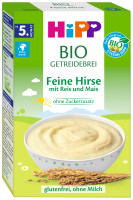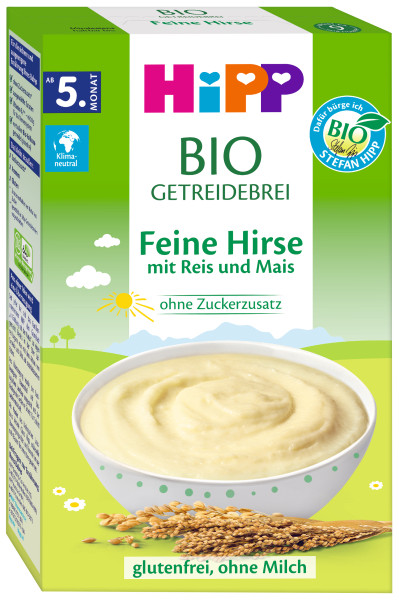Since 1999, the company has its own ethics charter based on responsibility to people, nature and the environment. Central concerns are fair competition and the respectful treatment of business partners, suppliers, customers and employees. HiPP recognizes that a perfect and harmonious alignment of our goals with our actions is a constant challenge. We want to face this and continuously improve ourselves in this process
| Quantity | Unit price | Reference price |
|---|---|---|
| To 5 | €3.45 * | €17.25 * / 1 kg |
| From 6 | €2.95 * | €14.75 * / 1 kg |
*prices incl. VAT plus shipping costs
Ready to ship today,
Delivery time appr. 1-4 days²
- Order number: 113056
- best before: 31.10.2024
- EAN: 4062300343030
- Manufacturer product ID: DA30400
- PZN: 17313105
- advice: Store in a dry place at room temperature.
Fine cereal porridge: also suitable for hypoallergens, as without milk
 HiPP organic cereal porridges contain valuable, tender organic cereal flakes. They are without added sugar and are particularly suitable if you want to prepare the porridge for your baby yourself. HiPP Organic Cereal Porridge Fine Millet, for the safe and balanced nutrition of your baby. In the cereal guide, which you can find on our tab "Notes / Tips", you can discover which cereals are particularly valuable for your offspring.
HiPP organic cereal porridges contain valuable, tender organic cereal flakes. They are without added sugar and are particularly suitable if you want to prepare the porridge for your baby yourself. HiPP Organic Cereal Porridge Fine Millet, for the safe and balanced nutrition of your baby. In the cereal guide, which you can find on our tab "Notes / Tips", you can discover which cereals are particularly valuable for your offspring.
- without added sugar - ingredients naturally contain sugar
- with selected ingredients
- with vitamin B1* - important for the nervous system
- with valuable, easily digestible organic whole grains
- gluten-free
- without milk
- vegan recipe
HA suitable - without milk
*required by law in baby cereals
| Filling quantity (weight): | 200g |
| vegetarian: | yes (V label) |
| vegan: | yes |
| baby food: | mash |
| milk-free products: | Yes |
| Products with organic ingredients: | yes |
| age group: | as from the 5th month |
| gluten-free products: | Yes |
| Shipping weight: | 0,241 kg |
| Manufacturer: | Hipp |
| Dimensions HxWxD (approx.): | 199x129x46 mm |
| Made in: | EU (Germany) |
| product group: | cereal porridge |
| brand: | Hipp |
| further properties: | climate neutral, gluten free, lactose-free, no added sugar, non dairy |
| Label: | klimaneutral |
| Target group: | Baby |
| Manufacturer address: | Hipp GmbH & Co. Vertriebs KG, Georg-Hipp-Str. 7, 85276 Pfaffenhofen (Ilm), Deutschland |
Manufacturer contact: Hipp GmbH & Co. Vertrieb KG, 85276 Pfaffenhofen
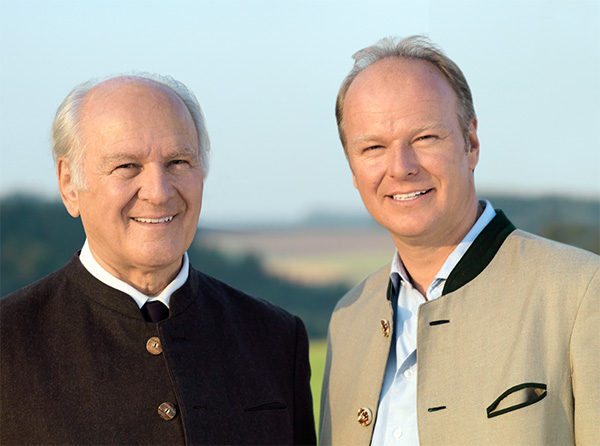
" Taking the baby into the limelight carries a great deal of responsibility, which is
why our organic products are of a very special quality and are GM-free according to the EU Organic Regulation. "
What began over 60 years ago with organic farming is practiced in all areas of the company: the careful use of the environment and natural resources, a respectful togetherness and the highest quality. All of these are requirements that HiPP has grown and that are closely associated with the name HiPP.
Sustainability as a corporate philosophy
Sustainability is the balanced balance between the three dimensions of ecology, economy and social issues. Sustainability is not a hot topic for HiPP. As a manufacturer of baby food, HiPP has special responsibility for future generations. HiPP has been committed to organic farming for 60 years and, as a pioneer, has shaped sustainable standards. Sustainability management keeps an eye on the company as a whole and the entire value chain. Long-term orientation of entrepreneurial activity, careful use of natural resources and social interaction are the key ethical principles followed by HiPP.
HiPP is "excellent"!
The involvement of HiPP has received many awards. The great trust of consumers and the public, which is documented in these recognitions, is both a great honor and a commitment for the baby food manufacturer. The company's claim is to continue meeting these expectations.
- Minister of the Environment awards HiPP the Ökologia Prize 2017
Since 2002, the Ökologia Prize has been awarded to companies or entrepreneurs who have committed themselves through particularly exemplary projects in favor of ecology and contributed to the realization of the desired ecological and social market economy. On October 19, 2017, Claus Hipp received the award from the Rhineland-Palatinate Minister of the Environment Ulrike Höfken in Mainz.
"From today's perspective, of course, many of what Claus Hipp did, of course, but 50 years ago, this was all new. In times of industrialization and chemical agriculture, Claus Hipp had already set a counter - trend here, created a different model of thinking and thus hit the nerve of the coming decades to this day ", said the Minister, handing the prize over in her function as" Ecologia Ambassador of the Ecology 2017 "together with Hans-Joachim Ritter. The Chairman of the Foundation for Ecology and Democracy said in his speech: "Claus Hipp is a pioneer of ecological awareness in agriculture and society, a shining example of an entrepreneurial personality,
previous awards: - dvi honors Prof. Dr. med. Claus Hipp with the Dieter Berndt Prize
- German CSR Award 2017 goes to HiPP
- EMAS environmental management 2016
- Climate Protection Award 2015
- 2015 "Customer favorite"
- WirtschaftsWoche named HiPP the most sustainable company
- 2014 "Honorary Querden Award"
- First place in the image ranking of WirtschaftsWoche
- CSR Award of the Federal Government
- German Sustainability Award of the Federal Government 2012
- FAUN category responsibility and sustainability
- Bavarian Family Contractor Award 2012
- German solar price
- Honoring for Umweltpakt Bayern
- Econosophen
- Pro Biokultura
- Steiger Award in the category Environment
- German Sustainability Award
- Environmental Award "Golden Flower of Rheydt"
Focus on the human being -
social and social responsibility
For HiPP, social responsibility is the essential basis for successful entrepreneurial action. This is reflected not only in the sustainable measures of personnel management, but also distinguishes the diverse social commitment in solidarity with people in need: HiPP helps young families with multiple births and regularly donates for the non-profit organization "Münchener Tafel e. V. ". Also auxiliary transport of Caritas in crisis areas supports HiPP. For the exemplary assumption of social responsibility HiPP 2013 received the first prize of the German Federal Government for Corporate Social Responsibility (CSR).
Appreciation and trust
Optimal working environment
As a family-friendly company, HiPP promotes the compatibility of family and work. Almost every department has different working models with flexible working hours, which give parents better career development opportunities. In Pfaffenhofen alone, 200 individual models and flextime variants without core time are used. The fact that the workforce feels comfortable is shown by the comparatively long periods of service.
health Management
The health and well-being of employees is the highest asset of a company. Those who feel comfortable feel more quality of life, are happier, more balanced and also more committed. Occupational health management is becoming more and more important as a component of HR, quality and sustainability management. Occupational pensions, high standards of occupational safety and health, action days for health, fitness and sports activities promote the well-being of our workforce. Organic food, regional food and allergen management round out the commitment in the company restaurant. So vegetarian and vegan dishes are also firmly integrated into the diet.
youth development
HiPP is international
Employees from over 20 different nations work at HiPP. We are especially proud of this cultural diversity. It enriches the corporate culture and strengthens our successful presence in the global environment.
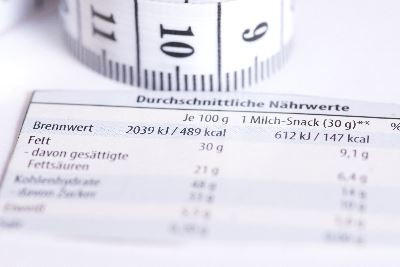 |  | ||||||||||||||||||||||||||||||||||||
Nutritional information | Ingredients | ||||||||||||||||||||||||||||||||||||
* according to reference value Depending on the type of preparation, different nutritional values per serving may result. Standard preparation per serving: 22 g product + 25 g HiPP 2 BIO Combiotik® powder + 200 ml water | Whole millet flour* 36%, rice semolina* 34%, corn flour* 30%, vitamin B1. *from organic production |
Preparation with milk formula

22 g product + 25 g milk food powder (e.g. HiPP 2 BIO Combiotik®) + 200 ml water
- boil 200 ml water and cool to approx. 50 °C³
- put 25 g of milk food powder and 22 g (3-4 tablespoons) of HiPP Millet Porridge in a plate. Add the cooled water and stir.
- Allow to swell until desired texture is reached. Check temperature
Preparation as porridge with HA food
When using HiPP HA foods, preparation as HA porridge is possible.
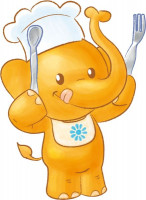 Preparation as dairy-free cereal-fruit porridge
Preparation as dairy-free cereal-fruit porridge
boil 100 ml water, cool to approx. 50 °C³ . place 2 tablespoons (11 g) HiPP Millet Porridge in a plate. Add the cooled water and stir. Add ½ glass (approx. 95 g) HiPP fruit (e.g. Williams-Christ pears) and stir in a teaspoon of HiPP organic rapeseed oil. Allow to swell until desired texture is reached. Check temperature.
Preparation as half-milk porridge
put 100 ml whole milk + 100 ml water** in a saucepan and bring to the boil. Allow to cool to about 50°C³ . place 3-4 tablespoons (22 g) HiPP Millet Porridge in a plate. Add the cooled liquid and stir. Stir in one teaspoon of HiPP Organic Rapeseed Oil. Allow to swell until desired texture is reached. Check temperature.
³ For optimal solubility: do not prepare porridge with water that is too hot
** The addition of water is necessary to reduce the protein content of the cow's milk in a way that is suitable for children
Grain varieties at a glance
Corn (gluten-free)
- What is corn and where does it come from?
Corn is a plant species of the sweet grass family. It originated in Mexico and came to Europe in 1525 by Christopher Columbus. - Why is corn suitable for baby nutrition?
Corn contains many healthy ingredients such as beta-carotene (provitamin A), various B vitamins, as well as vitamin E. It is also rich in minerals, especially worth mentioning are iron, magnesium, potassium and zinc. Corn is also gluten-free and is therefore particularly suitable for the start of complementary feeding. - Did you know?
Together with rice, corn is the most widely grown cereal in the world. Popcorn is made by heating dried kernels of special corn varieties. The starch in the corn then puffs up, gelatinizes and emerges from the husk with a foam-like structure. Corn is a heat-loving plant and requires dry sites in wind-exposed locations to meet the special requirements for baby food. Corn has been used in our HiPP porridges since 2009.
Sources
https://www.gesundheit.de/ernaehrung/lebensmittel/gemuese/mais-gesunder-genuss
https://www.lebensmittellexikon.de/z0000080.php
http://www.sfk.online/#/search/food/K0104
http://www.maiskomitee.de/web/public/Fakten.aspx/Wissenswertes
Millet (gluten-free)
- What is millet and where does it come from?
Millet belongs to the sweet grass family and is the umbrella term for small-fruited spelt cereals. There are over 600 species of millet worldwide. Its origins can be found in East and Central Asia and in the North African Mediterranean region. - Why is millet suitable for baby nutrition?
The name millet comes from ancient Germanic and means something like satiety. Due to its ingredients, millet lives up to its name and, in addition to energy, also has contents of many minerals and trace elements such as iron, magnesium or silicon. These are ingredients that are important for baby's development. Millet is one of the ancient cereals and is also gluten-free. Because of its relatively hard shell and tart taste, millet should always be eaten hulled. - Did you know?
Millet is the oldest cereal, on the basis of which unleavened flatbread was already made 8000 years ago. Due to its low gluten content, millet can be used very well for porridge production. Since 2010, the so-called panicle millet has been used for our HiPP products.
Sources
https://www.aid.de/inhalt/urgetreide-28442.html
http://www.hirsemuehle.de/hirse_htmls/hirse_das_hirsekorn.htm
https://www.lebensmittellexikon.de/h0000460.php
Ternes: Lexikon der Lebensmittel und der Lebensmittelchemie. Wissenschaftliche Verlagsgesellschaft mbH Stuttgart, 2007
Rice (gluten-free)
- What is rice and where does it come from?
Rice belongs to the grass family and refers to an annual cereal plant that includes over 8000 different species. It is grown in most Asian countries, but mainly in China and India. However, there are numerous areas of cultivation in Europe as well. - Why is rice suitable for baby feeding?
Rice serves as a staple food for about half of the world's population. Husked white rice primarily provides carbohydrates and energy to the body, while unhusked rice also has a much higher nutritional value in vitamins, minerals and fiber. Rice also represents a gluten-free grain alternative. As finely ground rice flakes, it can be integrated into baby's diet from an early age.
- Did you know?
The history of rice cultivation in Southeast Asia goes back up to 7000 years. Over 500 million tons of rice are processed annually. In many Asian languages, the words for rice and for food are identical, a sign of the great importance the plant has there for nutrition. For rice, as for all other raw materials, only the very best qualities are sourced. Only selected fields are harvested and processed for HiPP. To ensure water supply, rice is usually grown in river deltas or near large water sources.
Sources
Ternes: Lexikon der Lebensmittel und der Lebensmittelchemie. Wissenschaftliche Verlagsgesellschaft mbH Stuttgart, 2007
http://www.getreide.org/reis.html
http://www.planet-wissen.de/gesellschaft/lebensmittel/reis/index.html
Oats
- What is oat and where does it come from?
The seed oat is also called "white" or "true oat" and belongs to the sweet grasses. It forms its grains in branched panicles. Oats originated in Scandinavia. - Why are oats suitable for baby nutrition?
Oats contain a lot of protein and are rich in vitamins B1 and B6 as well as the minerals zinc and iron. It also has a high content of beta-glucans, which are soluble fiber and are believed to have a soothing and regulating effect on the digestive organs. - Did you know?
Oats were named Medicinal Plant of the Year 2017, largely due to their high fiber content. Due to its lower temperature requirements compared to wheat, oats are well suited for cooler locations. Therefore, oats are widely grown in northern European regions.
Sources
http://www.getreide.org/hafer.html
https://www.aid.de/inhalt/echter-hafer-28773.html
Ternes: Encyclopedia of food and food chemistry. Wissenschaftliche Verlagsgesellschaft mbH Stuttgart, 2007
https://www.ernaehrungs-umschau.de/fileadmin/Ernaehrungs-Umschau/pdfs/pdf_2012/04_12/EU04_2012_242_243.Markt.pdf
Wheat
- What is wheat and where does it come from?
Wheat is the longest cultivated cereal after barley. The origin of its cultivation lies in the area of the Fertile Crescent (north of the Arabian Peninsula, Iran, Iraq, Syria, Saudi Arabia). Wheat probably came to Europe during the Neolithic period about 7000 years ago, initially to the Mediterranean region. - Why is wheat suitable for baby nutrition?
Wheat contains mainly potassium, magnesium, a high amount of B vitamins and vitamin E. One of the best known ingredients of wheat is gluten or gluten protein, which is responsible for the good baking properties of wheat. - Did you know?
There is so-called durum wheat and soft wheat. The ears of durum wheat are shorter and the grains harder than those of common wheat. Due to its higher gluten content, durum wheat has a high cooking strength and is particularly suitable for pasta production. Soft wheat has a higher starch content and is therefore more suitable for porridges and baked goods. Durum wheat is grown mainly in the southern regions of Europe. Couscous and bulgur are also made from durum wheat.
Sources
Ternes: Lexikon der Lebensmittel und der Lebensmittelchemie. Wissenschaftliche Verlagsgesellschaft mbH Stuttgart, 2007
http://www.pflanzenforschung.de/de/journal/journalbeitrage/weltnahrungspflanze-weizen-864
https://www.lebensmittellexikon.de/w0000310.php
http://www.getreide.org/hartweizen.html
Rye
- What is rye and where does it come from?
Rye has its origins in Asia. However, for a long time it was considered a weed there. It was not until the 12th-13th centuries that rye was used to make bread. - Why is rye suitable for baby nutrition?
Rye is high in fiber and has a more tart taste than other grains. Like wheat, spelt and barley, rye contains potassium, magnesium, B vitamins, vitamin E and gluten. Because of its tart taste, rye is used only in cereal blends. - Did you know?
Rye is grown year-round and, like oats, is an undemanding grain. Although summer and winter rye have the same nutrients and processing characteristics, the winter grain is more commonly grown. Winter rye can tolerate temperatures as low as minus 25 degrees and is higher-yielding because it has more and much larger grains than summer rye. Rye has been in use at HiPP since 2010.
Sources
Ternes: Lexikon der Lebensmittel und der Lebensmittelchemie. Wissenschaftliche Verlagsgesellschaft mbH Stuttgart, 2007
http://www.getreide.org/roggen.html
https://www.aid.de/inhalt/roggen-ein-verkanntes-genie-4400.html
Barley
- What is barley and where does it come from?
Barley is one of the oldest cereals and originated in the Middle East. Barley is used in nutrition especially as pearl barley and flakes. - Why is barley suitable for baby nutrition?
Barley, like other cereal products, is considered a quick source of energy due to its high content of carbohydrates in the form of starch. Barley also has high content of the B vitamins. It is rich in dietary fiber and contains beta-glucans. Barley has a lower gluten content compared to other cereals. - Did you know?
The oldest evidence of barley use can be traced back to 15,000 BC. Even in ancient times, barley was considered to be of great importance. It was one of the first cereals to be cultivated specifically by humans. At HiPP, we have been using barley in our products since 2009.
Sources
Ternes: Encyclopedia of food and food chemistry. Wissenschaftliche Verlagsgesellschaft mbH Stuttgart, 2007
http://www.getreide.org/gerste.html
https://www.aid.de/inhalt/urgetreide-28442.html
Spelt
- What is spelt and where does it come from?
Spelt is a subspecies of wheat and originated in Georgia before spreading throughout Europe. However, due to its lower yield, the ancient grain lost its cultivation area and importance compared to conventional wheat. - Why is spelt suitable for baby nutrition?
Spelt can be used as meal, flakes or even cooked and has a nutty aroma. Its ingredients are similar to those of wheat, so it contains relevant amounts of potassium, magnesium, B vitamins and vitamin E. - Did you know?
If spelt is harvested while still unripe, it is called green spelt. Originally, this process was used to avoid harvest losses due to bad weather. We have been using spelt for our baby products since 2008.
Sources
Ternes: Encyclopedia of food and food chemistry. Wissenschaftliche Verlagsgesellschaft mbH Stuttgart, 2007
https://www.aid.de/inhalt/einkorn-emmer-dinkel-5047.html
https://www.aid.de/inhalt/urgetreide-28442.html
https://www.kern.bayern.de/presse/117367/index.php
Amaranth (gluten-free)
- What is amaranth and where does it come from?
Amaranth, unlike wheat or rye, is a member of the foxtail family and therefore not a grain. Rather, it is referred to as a pseudocereal that finds its origin in South America. - Why is amaranth suitable for baby nutrition?
Amaranth has valuable ingredients and convinces with its high content of iron, magnesium and potassium. Its nutty flavor makes it an interesting ingredient for savory dishes as well as an addition to muesli or yogurt. Amaranth is also gluten-free. - Did you know?
Among the Incas, amaranth was considered a sacred grain and was one of their staple foods. The leaves of amaranth can also be eaten and have a taste reminiscent of young spinach. We have been processing amaranth for our products since 2012.
Sources
https://www.aid.de/inhalt/amaranth-5615.html
https://www.aid.de/inhalt/pseudogetreide-28441.html
Buckwheat (gluten-free)
- What is buckwheat and where does it come from?
Buckwheat originated in Central Asia. Despite the relationship in name, buckwheat is clearly different from wheat. It also does not belong to the group of cereals, but to the pseudocereals. Botanically, it belongs to the knotweed family. Knotweed plants are herbaceous, shrub-like plants that form nut fruits. - Why is buckwheat suitable for baby nutrition?
Buckwheat contains high-quality protein and provides the minerals potassium and magnesium. It is gluten-free and has a tart, nutty flavor. - Did you know?
Buckwheat gets its name from the shape of its seeds, which resemble beechnuts. Buckwheat makes an important contribution to the food security of bees with its flowering. Buckwheat has been processed at HiPP since 2009, mainly for the Eastern European and Asian markets.
Sources
https://www.aid.de/inhalt/buchweizen-ist-vielseitig-5744.html
https://www.aid.de/inhalt/pseudogetreide-28441.html
http://www.getreide.org/buchweizen.html
Tapioca (gluten-free)
- What is tapioca and where does it come from?
Tapioca is not a grain but the starch extracted from the cassava root. Cassava belongs to the group of root and tuber vegetables and originated in Brazil. Today it is also native to Colombia, West Africa, India, Thailand and Indonesia. - Why is tapioca suitable for baby feeding?
Tapioca is largely tasteless and is well tolerated. It also contains no allergens and is gluten-free. - Did you know?
Tapioca is one of the most important staple foods in the world today. The main areas of cultivation are in South America, Africa and Asia. HiPP has used tapioca in Italy for many years, and in Germany since 2016.
Sources
Franke W: Nutzpflanzenkunde. Thieme 3rd edition, Stuttgart, 1985.
http://ecocrop.fao.org/ecocrop/srv/en/cropView?id=1420





 Hipp Baby Soft Organic Lip Care Stick Lipstick, 4,8g
Hipp Baby Soft Organic Lip Care Stick Lipstick, 4,8g 
 Bambinchen 1 infant formula based on goat milk, from birth on, 400g
Bambinchen 1 infant formula based on goat milk, from birth on, 400g 
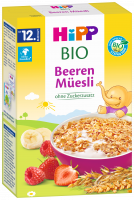
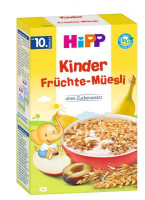
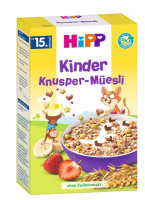
 Hipp organic milk porridge mix, 4 varieties: children's semolina,...
Hipp organic milk porridge mix, 4 varieties: children's semolina,...  Hipp kids muesli mix, consisting of 7-grain, crispy, fruit and...
Hipp kids muesli mix, consisting of 7-grain, crispy, fruit and... 
 Hipp children's milk combiotik from the 1st year, 600g
Hipp children's milk combiotik from the 1st year, 600g 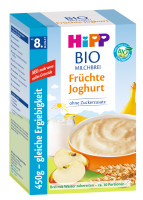


 Hipp organic porridge mix, consists of 100% oats, 100% rice,...
Hipp organic porridge mix, consists of 100% oats, 100% rice,... 




 NUK Soother Space silicone size 1, pack of 2, assorted colors
NUK Soother Space silicone size 1, pack of 2, assorted colors 



 Bebivita porridge mix 6: milk porridge semolina, fruit, biscuit,...
Bebivita porridge mix 6: milk porridge semolina, fruit, biscuit,...  Hipp kids muesli mix, consisting of 7-grain, crispy, fruit and...
Hipp kids muesli mix, consisting of 7-grain, crispy, fruit and... 


